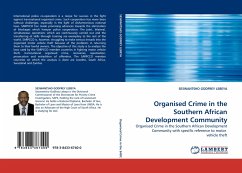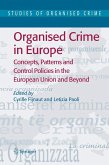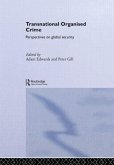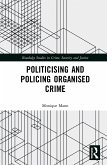International police co-operation is a recipe for success in the fight against transnational organised crime. Such cooperation has never been without challenges, especially in the light of disharmonious national laws. SARPCCO has made promising advances towards the elimination of blockages which hamper police cooperation. The joint, bilateral, simultaneous operations which are continuously carried out and the transferring of skills through training are exemplary to the rest of the world. SARPCCO is, however, struggling to make serious inroads into the organised motor vehicle theft because of the problems in returning them to their lawful owners. The objective of this study is to analyse the laws used by the SARPCCO member countries in fighting motor vehicle theft, transnational organised crime, recoveries, repatriation, prosecution and extradition of offenders. The SARPCCO member countries on which the analysis is done are Lesotho, South Africa, Swaziland and Zambia.
Bitte wählen Sie Ihr Anliegen aus.
Rechnungen
Retourenschein anfordern
Bestellstatus
Storno








